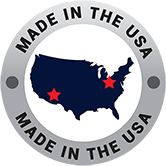N Type Thermocouple
Thermocouples operate based on the Seebeck effect, first discovered by Thomas Johann Seebeck in 1821. This phenomenon involves the generation of an electromotive force (EMF) or voltage across two junctions of dissimilar metals when there is a temperature difference between them. Typically, thermocouples are constructed with two distinct metal wires joined at one end to create the measurement junction, with their other ends commonly linked to a measuring instrument or controller. The choice of metals is tailored to the intended temperature range of the thermocouple’s application, resulting in various types of thermocouples with unique temperature characteristics. When the temperature at the measurement junction (hot junction) differs from that at the opposite end (cold junction or reference junction), a voltage emerges across the thermocouple wires. This voltage’s magnitude is directly proportional to the temperature difference between the hot and cold junctions. The generated voltage, typically falling within the millivolt range, is then measured using instruments like a voltmeter. Converting this voltage output into temperature involves the use of standard reference tables or mathematical equations, establishing the correlation between voltage and temperature specific to the type of thermocouple in use.
A Type N thermocouple is a type of thermocouple that is commonly used for temperature measurement in various industrial applications. Thermocouples are temperature sensors that generate a voltage proportional to the temperature difference between two different metal alloys or elements. In the case of Type N thermocouples, the two metal alloys involved are Nicrosil (nickel-chromium-silicon) and Nisil (nickel-silicon).
The Type N thermocouple has a temperature range of approximately -200°C to 1300°C (-328°F to 2372°F). It offers good stability and accuracy over a wide temperature range, making it suitable for various industrial processes, including heat treatment, petrochemical applications, and aerospace.
It’s important to note that thermocouples are often designated by letter codes (such as Type N) according to the combination of materials used in their construction. Different types of thermocouples are designed to meet specific temperature ranges, environmental conditions, and application requirements.
Cleveland Electric Laboratories: N Type Thermocouple
Cleveland Electric Labs (CEL) assumes a critical role across diverse industries, underscoring its significance in the field of electrical engineering and technology. Acclaimed for its innovative contributions, CEL stands as a key catalyst in advancing diagnostics, protection, and monitoring within power systems. The company’s sophisticated products and services have been instrumental in elevating the efficiency, dependability, and safety of electrical systems across a broad spectrum of applications. CEL distinguishes itself through a steadfast commitment to research and development, positioning it as a leader in the industry with a reputation for delivering top-tier solutions tailored to the dynamic needs of its clientele. Beyond its technical prowess, CEL actively contributes to the advocacy of sustainability and resilience in electrical infrastructure. With an unwavering dedication to excellence, Cleveland Electric Labs has become an indispensable ally for organizations seeking cutting-edge electrical solutions and technological progress.



